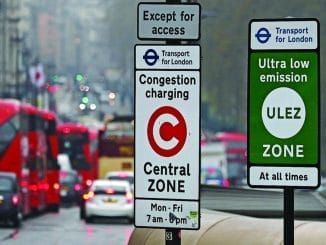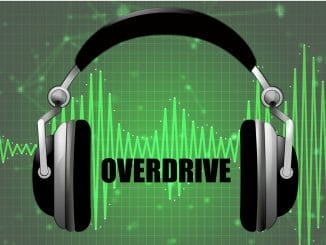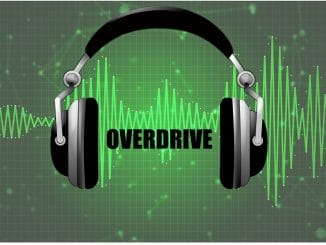Hello and welcome to Overdrive, where we stay at home and luxuriate in our dreams of cars and transport. Lets start with the news.
- Coronavirus keeping your car virus free (1:19)
- Ways to use your caravan while self-isolating (2:18)
- Car companies’ equipment for Coronavirus patients (3:15)
- The need to collect data (4:24)
- Hyundai’s Exoskeleton Wins Design Award (5:19)
- We talk to an Australian start up about an exciting new way to recycle tyres (6:28)
- Just before the shutdown we took two utes out onto the farm (14:30)
- Quirky news – with Brian Smith (20:21)
Car companies making equipment for Coronavirus patients
 General Motors and some Formula 1 teams have committed resources to make ventilators for severe sufferers of the Coronavirus. Others are getting on board with more products.
General Motors and some Formula 1 teams have committed resources to make ventilators for severe sufferers of the Coronavirus. Others are getting on board with more products.
While General Motors has been harassed about how quickly they can get production of ventilators, they will also convert their closed Warren plant to mass-produce surgical masks, an employee-led initiative in response to the coronavirus outbreak.
Production will ramp-up to make 50,000 masks per day within two weeks. It hopes eventually to make 100,000 masks per day based on material availability.
Ford aims to partner with GE Healthcare to expand production of GE’s ventilators and will also make face shields for first responders to use with N95 respirator masks.
Toyota will help some companies increase production of ventilators and respirators, it will mass-produce 3D-printed face shields, and also hopes to make filters for face masks.
Ways to use your caravan while self-isolating
 With many having to stay at home, parents and children are looking to ways to do things without getting in each other’s hair. There is a relatively common motoring device that can help
With many having to stay at home, parents and children are looking to ways to do things without getting in each other’s hair. There is a relatively common motoring device that can help
If your caravan is stored at home consider utilising it while you stay away from other activities. Possible uses for your van include:
- Setting it up as a home office
- Using the fridge and pantry to store additional supplies thus reducing the number of times you have to leave home
- Turning the caravan into a parent’s or children’s retreat
- Making it a home classroom or a study area especially for final year students
- If a family member is sick they can stay in the caravan to isolate from the rest of the family.
- Set up like a holiday in your front yard. Relax in your camping chair, sip your favourite drink, have a BBQ, and sleep in the caravan.
Hyundai’s Exoskeleton Wins Design Award
 Innovations developed by car companies can have applications in non-motoring situations. The Korean’s have just won an award for a different form of technology.
Innovations developed by car companies can have applications in non-motoring situations. The Korean’s have just won an award for a different form of technology.
The Hyundai Motor Group covering Hyundai and Kia vehicles has just won a major award in the Product Design category (Innovative Product field) at the Red Dot Design Awards, the prestigious international competition, now in its 60th year.
But it was not for a better engine, gearbox or even exterior design.
It was for an exoskeleton wearable robot, called VEX.
In biology, an exoskeleton is a hard, external covering to help support an animal such as a shell.
VEX is designed primarily for production-line workers who need to work with their hands above their heads,
Hyundai plans to develop additional ones that will enhance productivity and work safety as well as support rehabilitation of injured patients.
The need to collect data
 Often, we collect traffic and transport data for short term needs. We need to measure and save data to understand the short and long-term impact of the Coronavirus.
Often, we collect traffic and transport data for short term needs. We need to measure and save data to understand the short and long-term impact of the Coronavirus.
As many people are keeping any trips down to a minimum, most authorities have stopped collecting transport data.
In the UK The Department for Transport is urgently seeking local authority transport data to aid the response to Covid-19.
John Reid is the Managing Director of Austraffic a major transport data collection business gave one interesting example
“We had one example, though. It stands out as unique. Melbourne City Council on Friday a week before last, on the Friday rang in and cancelled an annual count program that includes bikes in the Melbourne’s CBD. But Monday it actually rang back and actually thought it was a unique opportunity to actually collect some data.
Coronavirus keeping your car virus free
 We have heard about many protection measures against the Coronavirus on public transport, in public places and at home. But don’t forget your car
We have heard about many protection measures against the Coronavirus on public transport, in public places and at home. But don’t forget your car
Standard car cleaning products such as car wash detergents, glass cleaners and silicon sprays aren’t formulated to combat viruses.
Household products and disinfecting wipes are more appropriate.
It is best to check the label for suitability. Ammonia-based cleaning products, for example, can ruin vinyl surfaces.
One rent-a-car study found steering wheels can have four times more germs than a toilet seat.
Don’t forget the exterior and interior door handles including the bonnet and boot, gear lever, climate controls, radio and other buttons, the rearview mirror, and your centre console including the cupholders.
And your key fob, but always be careful with anything electric
You can find more information at Driven Media or previous programs are available as podcasts on iTunes or Spotify. OR our Facebook site OverdriveCity
Originally broadcast 5 April 2020 across Community Broadcasting Association of Australia (CBAA) and Torque Radio affiliated commercial radio channels.




